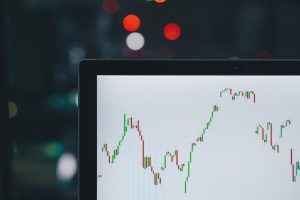When it comes to trading, there are many options available. Two popular markets are the stock market and the foreign exchange (forex) market. Both offer potential for profit, but which one is better to trade? In this article, we will explore the differences between trading stocks and forex, and help you decide which one is best for you.
What is the Stock Market?
The stock market is a marketplace where stocks or shares of publicly traded companies are bought and sold. It is a regulated market, and each stock is assigned a unique symbol that identifies it. The stock market operates on a centralized exchange, such as the New York Stock Exchange (NYSE) or the Nasdaq. Investors buy and sell stocks through a broker, who acts as an intermediary between the investor and the exchange.
What is Forex?
Forex, or foreign exchange, is the market where currencies are traded. It is a decentralized market, meaning that transactions take place over-the-counter (OTC) and not on a centralized exchange. Forex trading involves buying one currency while simultaneously selling another currency. The exchange rate between the two currencies determines the profit or loss of the trade.
Differences Between Stock Market and Forex
1. Market Size
The forex market is the largest financial market in the world, with a daily turnover of over $6 trillion. In contrast, the stock market has a daily turnover of around $200 billion. The forex market is more liquid and has more trading opportunities due to its size.
2. Trading Hours
The stock market has fixed trading hours, typically from 9:30 am to 4 pm Eastern Time. The forex market, on the other hand, is open 24 hours a day, five days a week. This means that forex traders can trade at any time, making it more convenient for those who have other commitments during regular trading hours.
3. Leverage
Forex trading allows for higher leverage than stock trading. Leverage is a tool that allows traders to control a larger position with a smaller amount of capital. In forex, traders can use leverage of up to 50:1 or even 100:1, meaning they can control up to $50 or $100 for every $1 they invest. In the stock market, leverage is typically limited to 2:1 or 3:1.
4. Volatility
The forex market is generally more volatile than the stock market. This means that currency prices can move more quickly and in larger increments, creating more opportunities for profit. However, higher volatility also means higher risk.
5. Information Availability
The stock market is heavily regulated, and companies are required to release financial reports and other information to the public. This makes it easier for investors to make informed decisions about which stocks to buy or sell. In contrast, the forex market is less regulated, and information is not always readily available. This can make it more difficult for forex traders to make informed decisions.
Which is Better to Trade?
The answer to this question depends on your individual trading style and goals. Here are some factors to consider:
1. Timeframe
If you prefer short-term trading, forex may be a better option due to its 24-hour trading availability and higher volatility. However, if you prefer a longer-term approach, the stock market may be more suitable due to the availability of information and the stability of stocks over time.
2. Risk Tolerance
Forex trading is generally considered to be riskier than stock trading due to its higher volatility and leverage. If you have a low risk tolerance, you may prefer to trade stocks, which are generally considered to be less volatile.
3. Capital
Forex trading allows for higher leverage, meaning you can control a larger position with a smaller amount of capital. If you have limited capital, forex may be a better option due to its higher leverage. However, higher leverage also means higher risk, so it is essential to manage your risk carefully.
4. Trading Style
Your trading style will also play a role in determining which market is better for you. If you prefer technical analysis and trading charts, forex may be a better option due to its higher volatility and price movements. If you prefer fundamental analysis and analyzing financial reports, the stock market may be more suitable.
Conclusion
In conclusion, both the stock market and forex offer potential for profit. The choice between the two depends on your individual trading style and goals. If you prefer short-term trading, higher volatility, and higher leverage, forex may be a better option. If you prefer longer-term trading, stability, and lower volatility, the stock market may be more suitable. Ultimately, it is essential to do your research and choose a market that aligns with your risk tolerance and trading style.





